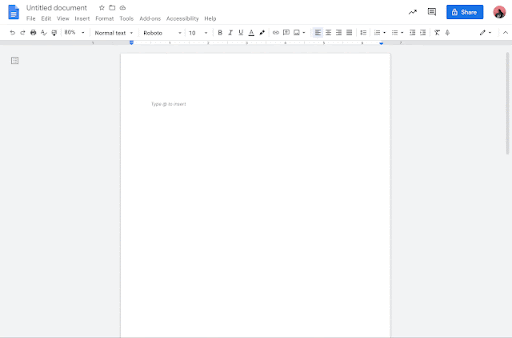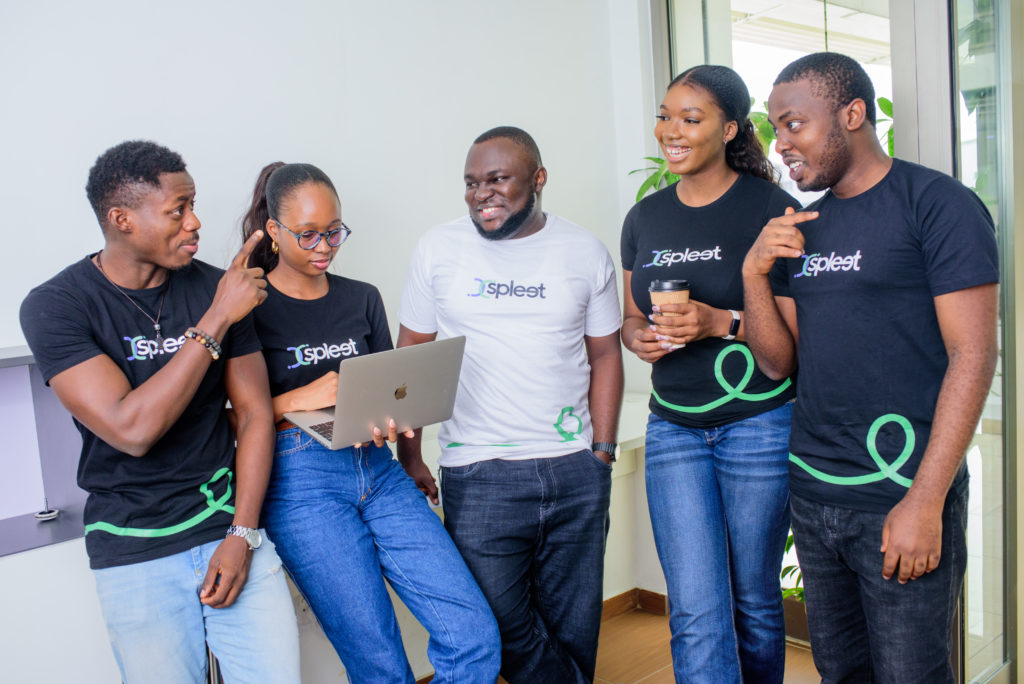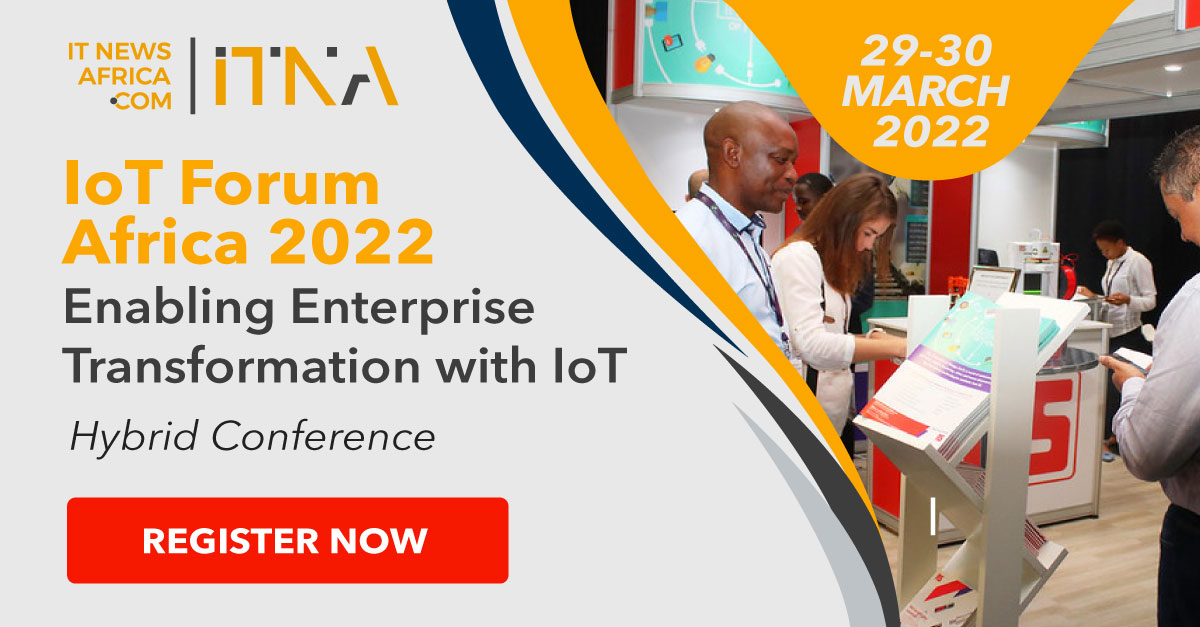
IN PARTNERSHIP WITH

Good morning ☀️
Google Suite has a helpful new update: users will be able to draft emails right from Google Docs.
Google tries really hard. Other than delivering us from Zoom, the platform is improving seamless communication between its professional apps, allowing users to easily switch between apps, and use one app’s feature in multiple apps.
To use this latest update, users simply insert the @ button, select “Email Draft” from the menu.

The update hasn’t been rolled out already though, but Google says most users should have it by next week.
In today’s edition
- Sokowatch is now Wasoko
- The biggest tech moves in Africa from February
- How Spleet is building a rent-now-pay-later platform
- Ask An Investor: The Cameroon Angels Network (CAN)
- Opportunities
SOKOWATCH IS NOW WASOKO

Sokowatch, an e-commerce company offering tech-enabled supply chain solutions to Africa’s informal retailers, on Wednesday said it has closed a $125 million Series B equity round at a valuation of $625 million.
Money changes things, and Sokowatch is taking this literally. With its new raise, the company has rebranded to Wasoko, which translates to “People of the Market” in Swahili.
Why is Sokowatch rebranding?
Know that “Remember whose child you are” proverb? Well, it’s the vision behind Sokowatch’s rebrand.
According to the company, its new brand reflects a “shift from its origins as a backend distribution software platform in East Africa to a public brand providing free delivery of essential goods and working capital financing to informal retailers across opposite ends of the African continent”.
Sokowatch over the years
In case you’re just hearing of them, here’s a backstory on Sokowatch, or rather, Wasoko.
Wasoko is an online platform where informal retailers can order products at any time via SMS or mobile app for free same-day delivery to their stores. And leveraging purchasing data, the platform also evaluates retailers to provide them with access to Buy Now Pay Later (BNPL) financing.
Since its launch in 2016, Wasoko claims to have delivered 2.5 million orders to over 50,000 informal retailers across Kenya, Tanzania, Rwanda, Uganda, Côte d’Ivoire, and Senegal, with revenue growth over the past 12 months at over 500%. It currently has more than 800 full-time employees across Africa.
And now, Wasoko
With its raise and rebrand, Wasoko has also expanded to Abidjan (Côte d’Ivoire) and Dakar (Senegal), its first locations in West Africa.
Wasoko’s raise is also the second-largest venture financing round secured by a non-fintech startup, and the largest ever the largest in the B2B retail e-commerce space on the continent. It was led by Tiger Global and Avenir Growth Capital who believe in Wasoko’s ability to improve efficiency for informal retailers.
Don’t just send money, send money fast. Send and receive money directly to mobile wallets, bank accounts, Barter or through cash pickup with $end.
Visit send.flutterwave.com and do it now!
This is partner content.
THE BIGGEST TECH MOVES IN AFRICA FROM FEBRUARY

Last year, startups on the continent raised over $4 billion in 355 funding deals. This year, we’re on track to raising over $7 billion.
In January, $430 million was raised across 60 funding deals. In February, startups exceeded that amount by raising about $600 million in 60 deals (seems like we’ve got a deal with 60 this year).
That’s a whopping $1 billion in 2 months alone, and we’ve still got 10 more to go.
What other big moves were taken in the ecosystem in February? Well, here’s a list of the biggest tech moves Africa made in February:
- In February, Africa’s Big 4—the 4 leading countries from each region, Nigeria, Kenya, South Africa, and Egypt—led funding concentration with 95% of funding deals made within the 4 countries alone.
- Unsurprisingly, fintech led as the sector that got the most funding. But software made a breakout in February with chat platform Clickatell’s $91 million raise.
- Flutterwave became the most valuable startup on the continent, raising $250 million at a $3 billion valuation. The unicorn also launched a couple of new services including fintech-as-a-service (FaaS), SME lending, and Google/Apple Pay options.
- Online marketplace OLX also exited Africa completely by pulling down its South African site. OLX previously exited Ghana, Kenya, Uganda, Tanzania, and Nigeria in 2019.
- Africa’s second-largest pre-seed deal also came in February. Nigeria’s crypto-focused startup Nestcoin raised $6.5 million led by Distributed Global, Alter Global, Serena Ventures, Alameda Research, and A&T Capital.
- Meta also shut down its Express Wi-Fi, a programme that provides low-cost internet to local communities, businesses, and mobile operators.
- Finally, Africa’s biggest telecoms company MTN, rebranded itself as a tech company. MTN also changed its long-standing logo to a plain black-and-yellow one.
A lot happened in February, but here are the biggest and most notable tech moves made on the continent. We’ll be sure to bring you March’s roundup way earlier so keep reading and watch out!
Buy Dollar stablecoins with Naira on Busha, Earn passive income on your Dollar stablecoins, Receive interest daily and cash out anytime you want. With Busha, you get access to the best flex savings for Dollar equivalent in Nigeria. Start saving for the future you want NOW!
This is partner content.
HOW SPLEET IS BUILDING A RENT-NOW-PAY-LATER PLATFORM

In 2018, Akintola Adesamni founded Spleet to help Africans—starting with Nigerians—find houses and pay rent monthly, seamlessly and cost-effectively. For anybody who’s rented a house before in Lagos, particularly, this might pass as the best news ever.
Spleet is a marketplace to connect people with living spaces. Adesanmi convinced property owners—corporate and individual landlords—to list their houses on the platform for monthly rent, which, of course, is very unusual. It’s often easier for landlords to chase tenants annually than monthly.
The problem?
Well, it’s affordability vs availability. Africa suffers from a property deficit. That means, there are not enough homes to house the continent’s ever-growing population. And the homes that are available are simply too expensive for people.
Also Spleet, while a good development for tenants, didn’t hit the landlord mark. In fact, it took Spleet 15 months to onboard 16 landlords and about 101 spaces on the platform.
It became apparent that this model would not scale. But what would scale?
The process
After over 3 years of trying to scale its marketplace, Spleet realised that it must continue to create affordability for tenants—which is supporting monthly payment—but ensure that landlords could also get paid annually.
To help implement this direction, Spleet got into the MetaProp accelerator, the largest proptech accelerator programme in the world to which it had failed to get into in 2019. Spleet became the first and one of the only 2 African startups that have ever gone through the programme. The programme only accepts 9 startups yearly.
At the end of the accelerator, Spleet announced a pre-seed funding of $625,000 led by MetaProp VC and a host of other firms and angel investors including Flutterwave’s Olugbenga Agboola.
The solution
Other than funding, another result of the accelerator was the solution to Spleet’s problem. The programme helped them to further understand the rental culture in Africa and how to build a sustainable business around the solution at scale.
Now, Spleet won’t just be a platform where people go to look for houses to rent, it’s now a platform where tenants can request a loan to pay for rent and then spread the repayment across a maximum of 12 months. This way, tenants can continue to pay rent per month and landlords who want annual payments can be served as well.
The startup has partnered with a bank that provides the loan and then shares the return on the interest with them.
The new financing offering was launched into beta last week and has already recorded over $10,000 worth of requests.
Going forward, it looks like Spleet is finally ready to become the go-to platform for everything residential in Africa.
Fincra provides reliable payments solutions for fintechs, online platforms and global businesses. Their solutions make it super easy for businesses to send and receive local and international payments in EUR, GBP and NGN from/to customers, suppliers and partners seamlessly without the headaches associated with traditional payment methods. You can gain access to Fincra’s platform through a merchant portal or simply integrate their payment API keys into your platform.
Sign up for a quick demo in less than 5 minutes here.
This is partner content.
HOW THE CAMEROON ANGEL NETWORK INVESTS IN STARTUPS

On a cool evening in the summer of 2016, a group of friends in Cameroon were having a nice time over a bottle of wine.
After a while, the conversation drifted to the topic of investments and the opportunities that abound in the country. As the conversation got more serious, Serge Nnmatak, then Director of Public Policy at Microsoft; Rebecca Enonchong, founder and Chief Executive Officer of AppsTech; and other friends talked about pooling resources together to start investing in Cameroonian startups.
Members of the group started attending startup pitches and investing informally, learning the ropes of angel investing along the way. They invested individually in the startups, or collectively invested in a startup pitched by a group member.
After 2 years of doing this and welcoming new members to the group, it was time to make the investing arrangement formal by registering the group.
This was where they faced their first big challenge.
“We got a very interesting challenge from the government, because people were asking us, if your organisation’s name is Angel, it means you’re probably a church. You should be registered as a religious group, so follow the registration process for churches,” Nnmatak said over a call.
After much back and forth over the span of 2 years, the government officials finally accepted that Cameroon Angel Network (CAN) was not a church and, in 2020, their registration was finalised.
Since then the Cameroon Angel Network has continued to invest in startups and attract new members, mostly entrepreneurs. But how does the network select startups to invest in? What are its criteria?
In the latest edition of Ask An Investor, Daniel Adeyemi sits with Serge Nnmatak to find out.
EVENT: IOTFA2022

Africa’s premier Internet of Things event, the #IoTFA2022, is set to be held on 29 and 30 March 2022 at the Maslow Hotel in Johannesburg, South Africa.
The event will feature an exciting list of visionaries, thought leaders, and industry experts who will explore the benefits and challenges of IoT in key industries.
The hybrid event will also offer Africa’s biggest IoT players a platform to showcase some of the latest IoT solutions to a diverse audience drawn from the public and private sectors.
You can participate as a speaker, as an attendee or even join the event as an exhibitor.
Find out more about #IoTFA2022 here.
OPPORTUNITIES
- Applications are open for the Sound Connect Funds in Southern Africa 2022 grant. Southern African NGOs and businesses that focus on and support the cultural and creative sector in Southern Africa are invited to apply to get up to €180,000 in grants. Check it out.
- Applications are now open for the United States African Development Foundation/Stanbic Kenya Grant Foundation Programme 2022. MSMEs in Kenya that are 100% African-owned are invited to apply for the chance to get up to $50,000 in grants. Check it out.
- The VC4A Mentor-Driven Capital Programme Nigeria 2022 is now open to applications. Twenty people—including investors and business professionals—with an interest in Nigeria will participate in the mentor-driven boot camp where they’ll learn valuable insights into building and funding. Invest in yourself here.
- Dream VC’s Launch into VC and Investor Accelerator Programmes are now open to applications. The former targets young working professionals keen on breaking into the African VC space, and the latter focuses on mid to late-stage professionals, experienced operators and entrepreneurs pivoting into an investment career. Check out Launch into VC here, and Investor Accelerator here.
What else we’re reading
- How much did African startups raise in 2021? Here’s a roundup of the biggets moves.
- Quick Fire 🔥 with Mylene Flicka.
- Jiji rebrands Cars45 to Jiji Cars.
- US-based imaging-guided therapy provider Astute acquires Egyptian healthtech startup DilenyTech.
- Luno launches Luno Expeditions, its new global, early-stage investment arm to back elite fintech and crypto/web3 founders.
- Spotify has bought the naming rights to FC Barcelona’s football stadium.
DON’T JUST READ THE BRAND, WEAR IT TOO! 👕
Look the part. Check out techcabal.com/shop to start your journey.



























